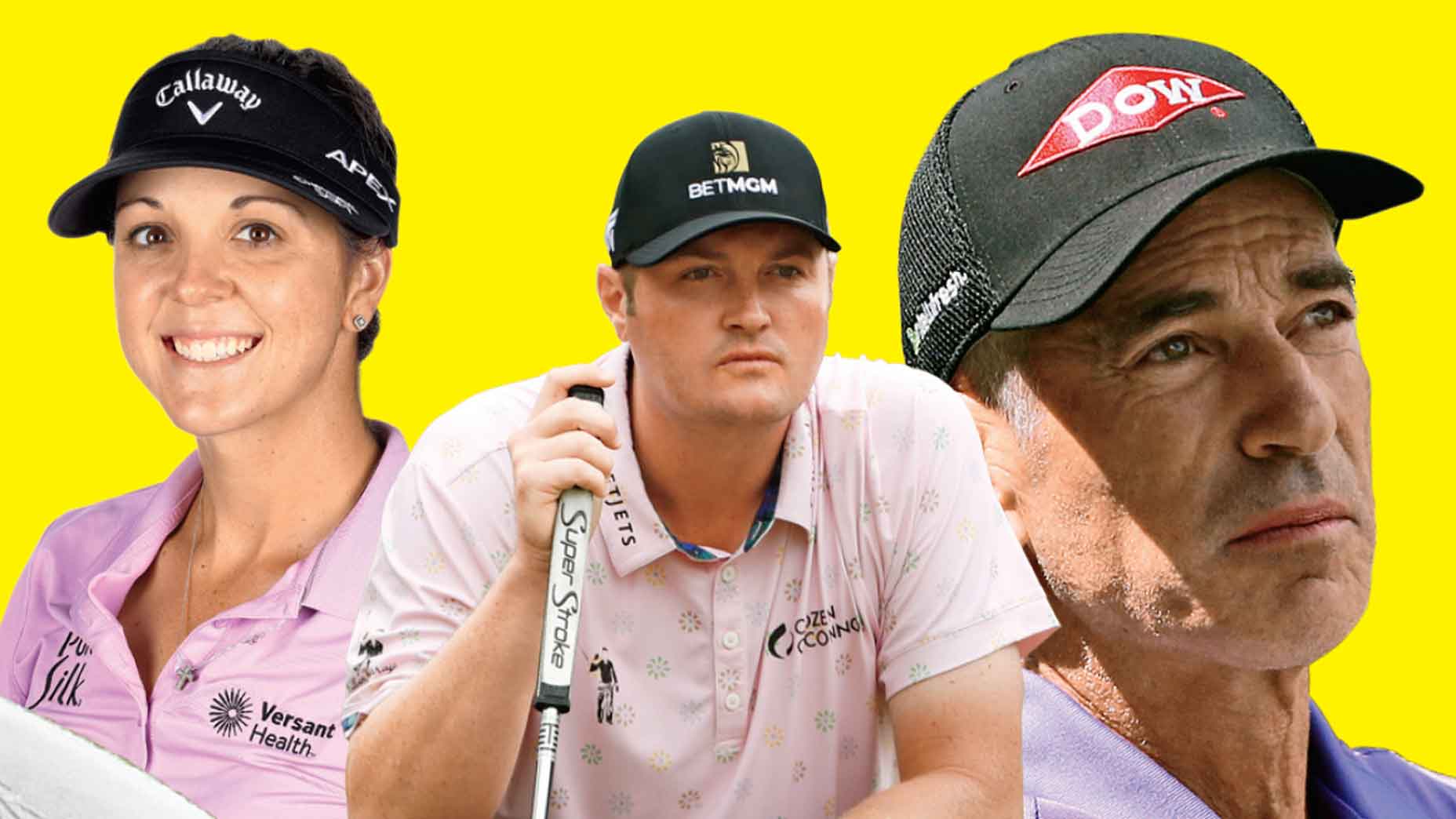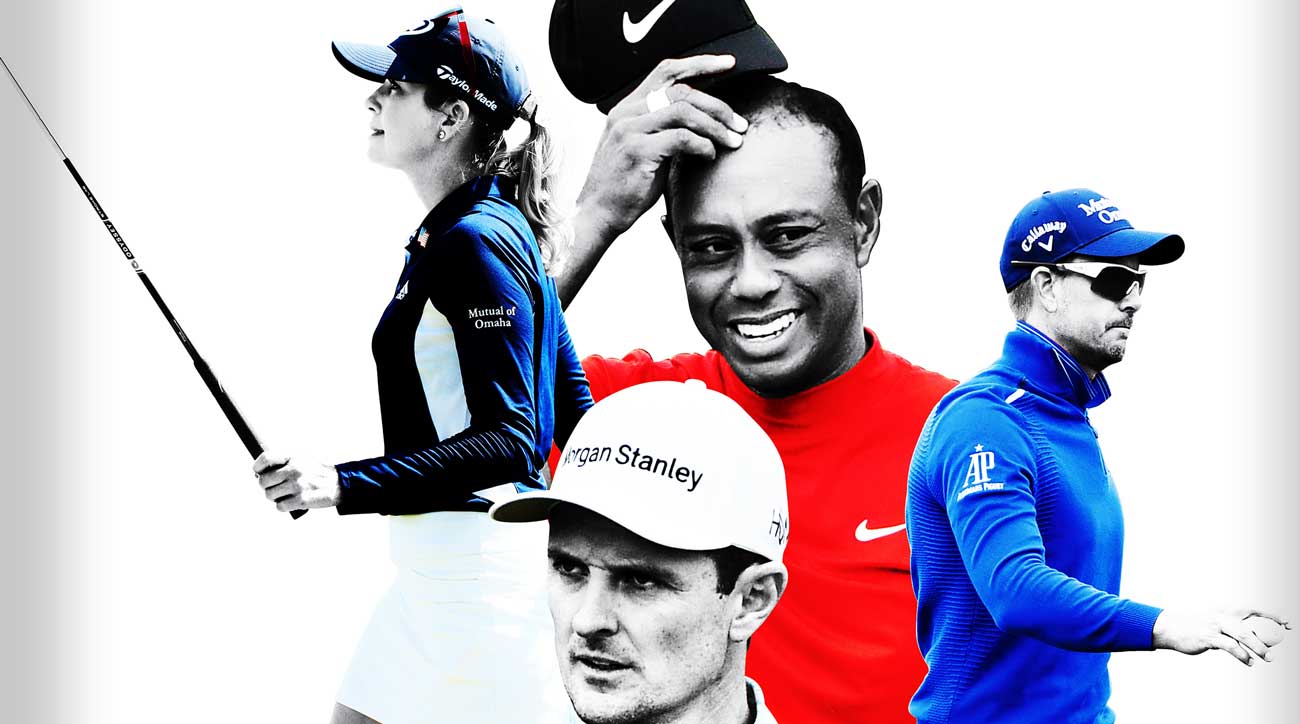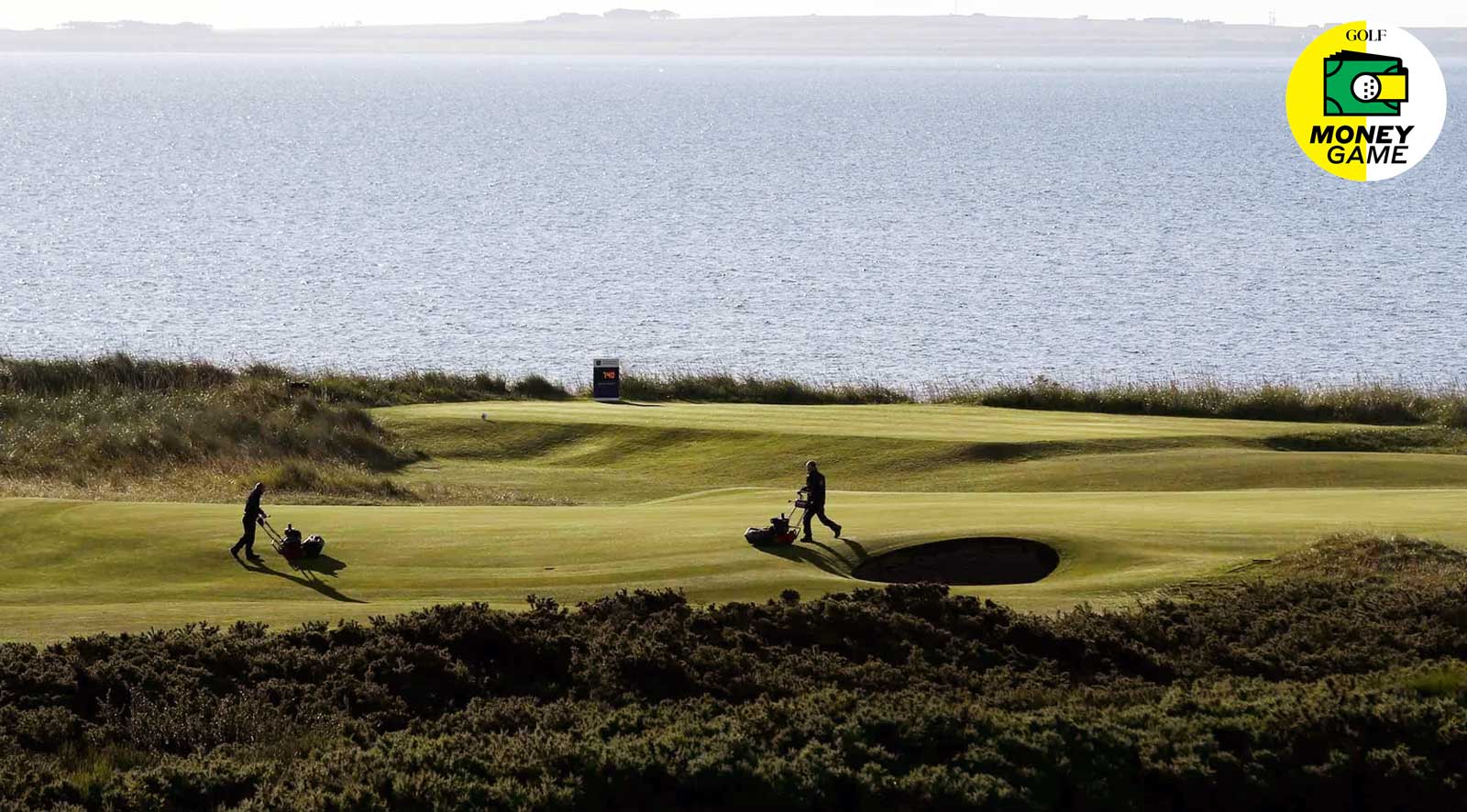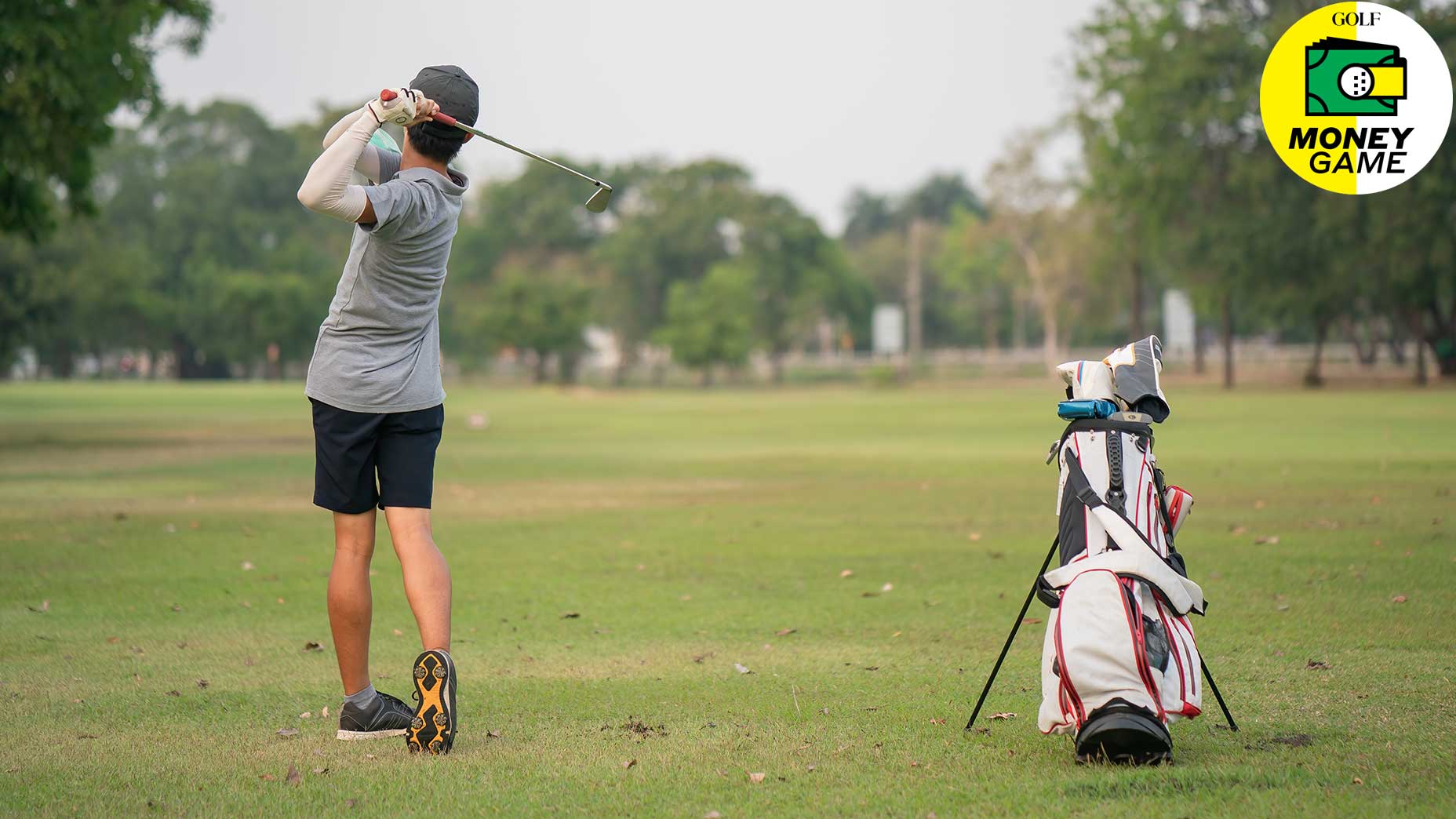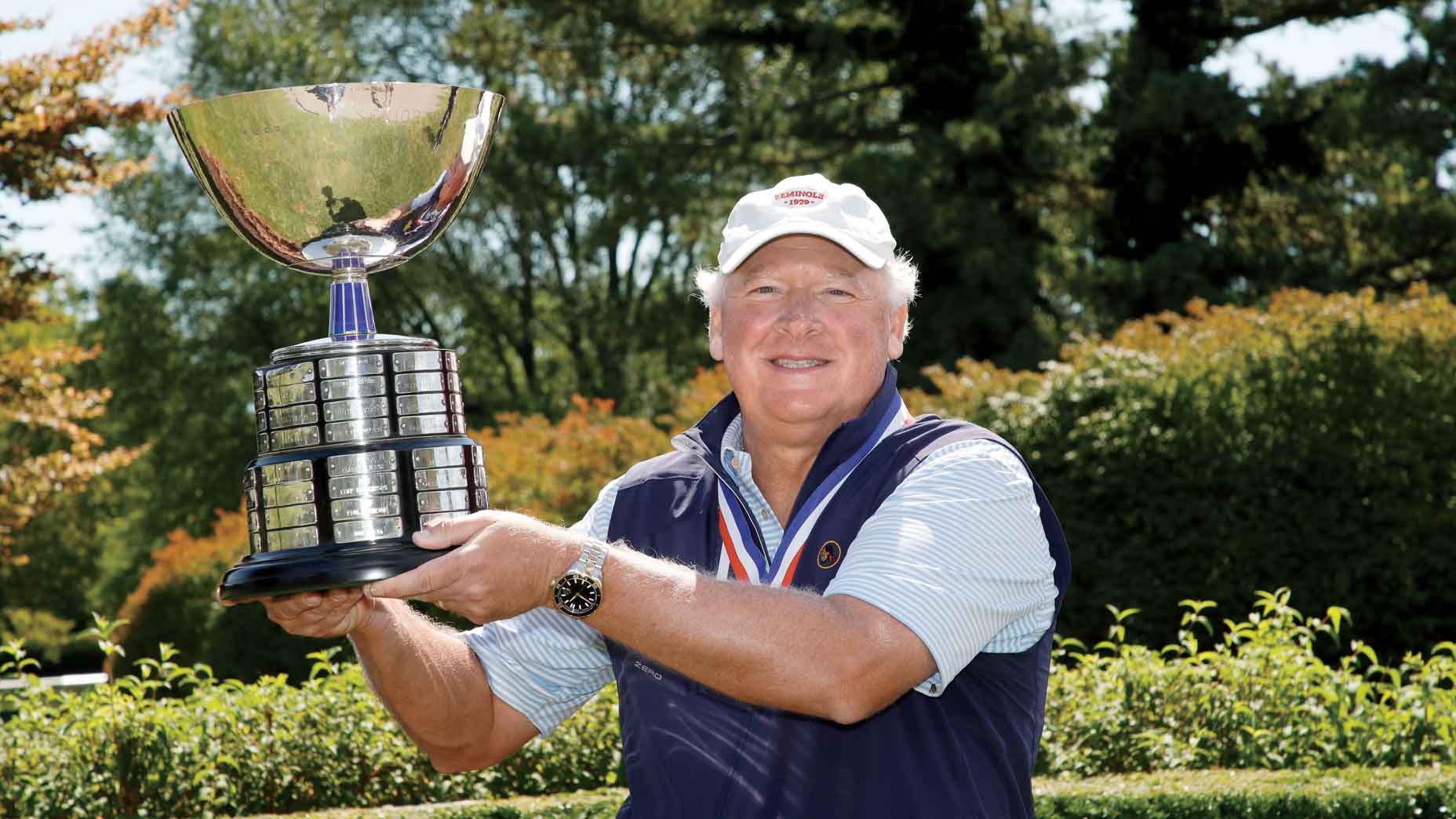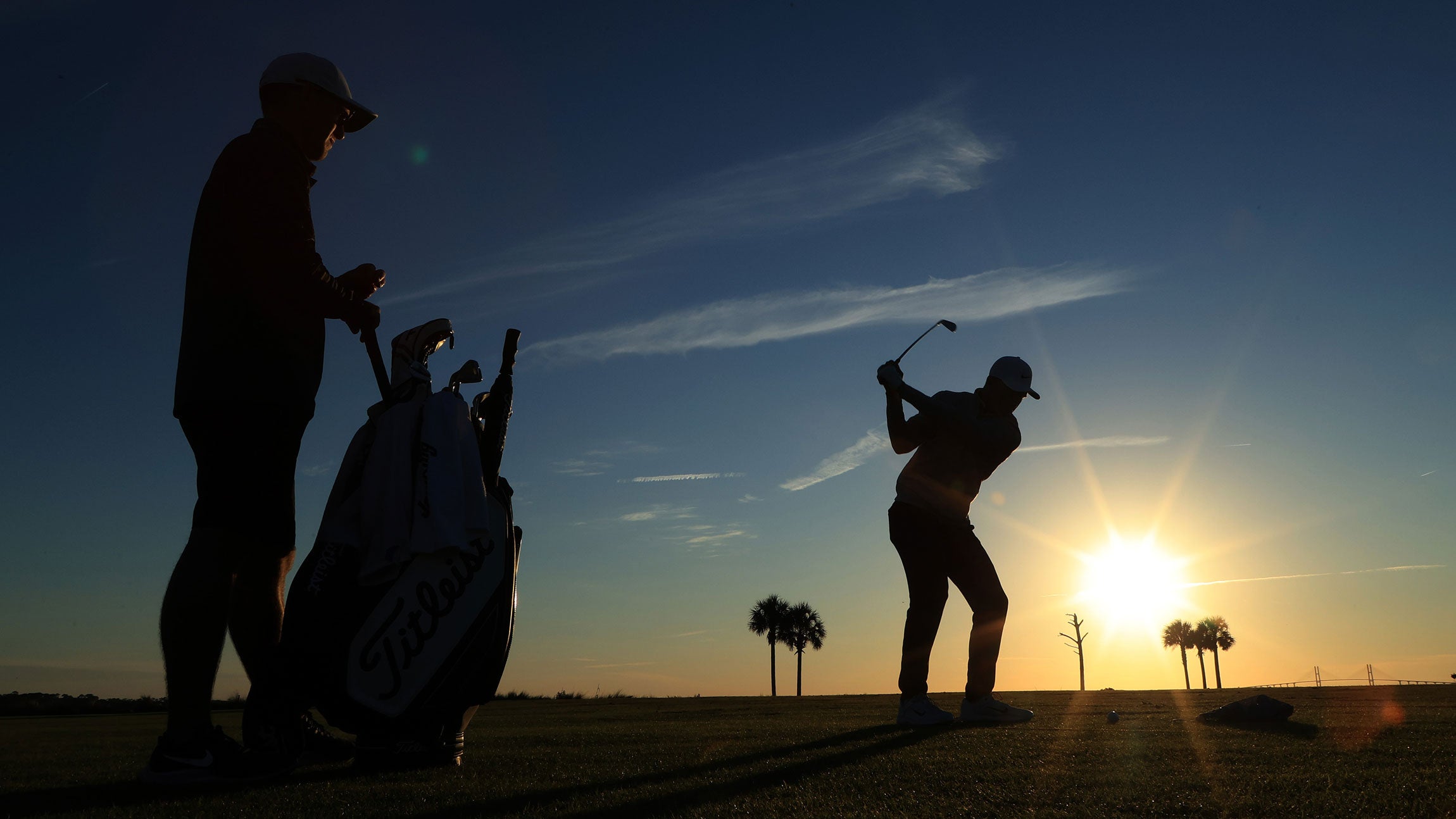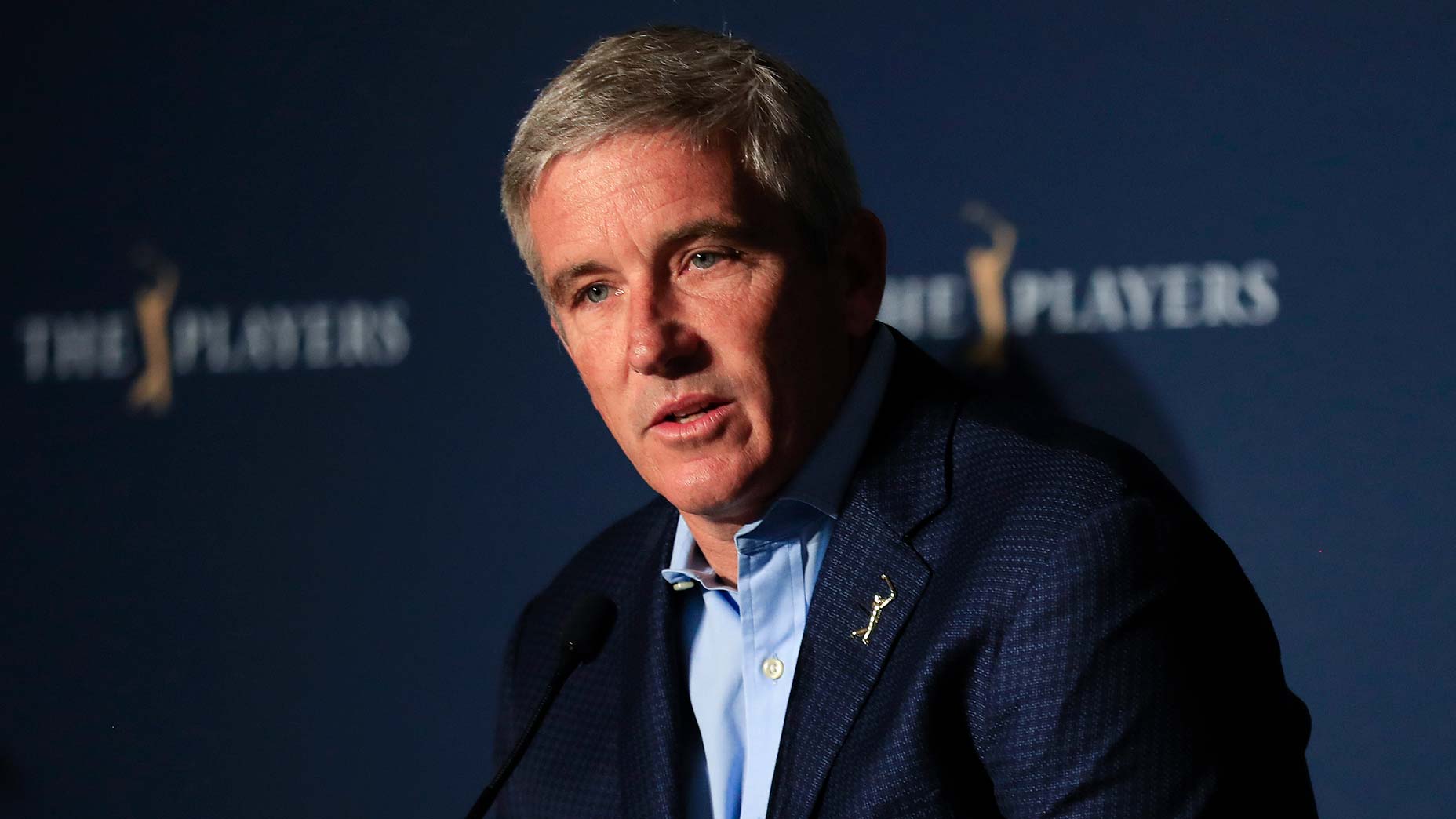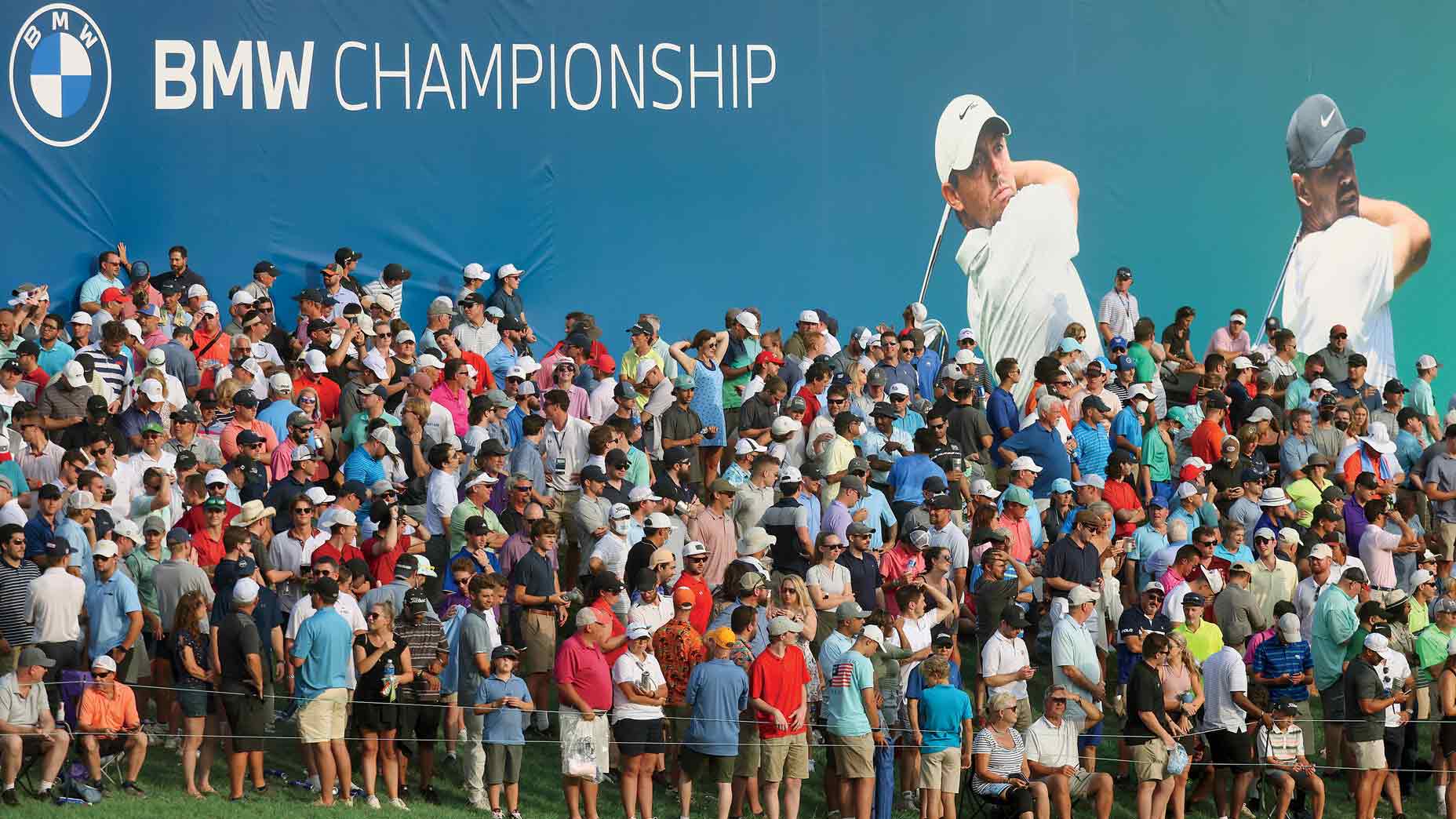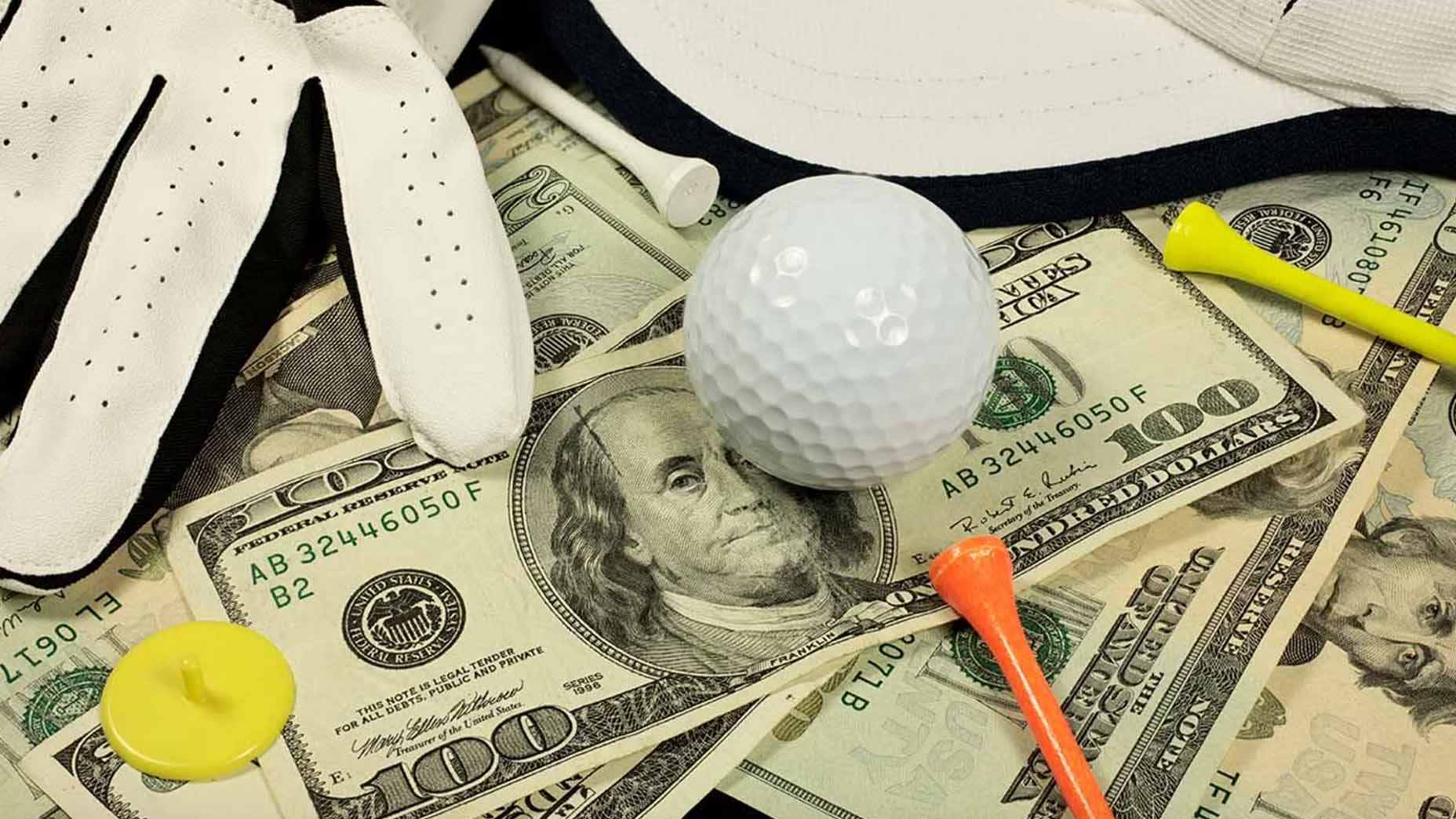A few years ago, Patrick Cantlay was playing in Seminole’s pro-member with a Goldman Sachs board member. It’s an illustrious tournament, pairing the club’s successful members with a roster of PGA Tour stalwarts and young bucks.
A highway-size board in the men’s grillroom attests to its who’s who of past winners, including Rory McIlroy and Rickie Fowler. That day, Cantlay was wearing a Titleist hat, but in the course of the round talk turned to a different sponsor. Goldman had recently launched Marcus, its consumer banking division, and it was looking for a player to carry its logo.
When equipment manufacturers sponsor players, no one struggles to guess why they do it. TaylorMade makes drivers full of technology, and it has aligned itself with some of the game’s longest hitters. Titleist has made its balls synonymous with Tour victories — and sales follow suit. What makes corporate sponsorships worth their while is more complicated. Cantlay, though, was interested in Marcus. “With Marcus, we were both getting off the ground,” Cantlay said. “It was the right time for us to grow together.”
For Marcus, it was also the right pick. “We were super-impressed with his inquisitiveness,” said Dustin Cohn, head of brand and marketing for consumer and investment management at Goldman Sachs. “We think of Patrick the same way as we do Marcus — early stage, with a ton of potential.”
After the Seminole pro-member, Cantlay found his groove and is now ranked in the top 10. He’s worn Marcus on his hat for his two most recent PGA Tour victories.
That kind of exposure never hurts. Nor does the affluent demographic that watches golf, since they can afford what corporate sponsors are selling. But the real juice is breaking through the marketing noise: Golf gives companies a direct link to a sport where their customers, average golfers at best, can feel connected to — and maybe even meet — the top players in the world.
“It’s getting better and better, particularly in the era of diversity and inclusion,” says Jay Burton, a sports agent who represents LPGA stars like Paula Creamer. “I have no idea why it took companies so long to catch up to BMW and Rolex. I’m just glad they [did].”
Rolex and BMW have linked themselves to great moments in golf. Companies like Morgan Stanley, IBM and AT&T have gotten on board as well, with their sizable marketing budgets.
Hubs Peanuts — that’s a different story. The premium peanut producer (a tin costs about $25) has its logo on three-time mini-tour winner Mark “Hubbs” Hubbard’s left sleeve. It happened after Marshall Rabil, a third-generation owner of the nut company, DM’ed Hubbard on Instagram.
Money Game Mailbag: How much does it *really* cost to be a Tour pro?By: Paul Sullivan
Hubbs, the player, is grateful for the support and, as part of his deal, passes around packets of peanuts at events. “During the U.S. Open, the locker-room guys at Winged Foot were super excited about it,” he said.
Hubs, the company, is thrilled too. “I basically used my event marketing budget for the year to sponsor Mark,” Rabil says. It was a great trade, since all those non-golf events were canceled.
Versant Health, which provides eye insurance, is sponsoring two LPGA players, Gerina Piller and Emma Talley. In a world where the word authentic is overused, Versant found two players who could talk the talk. Talley’s dad is an optometrist, and Piller’s vision is awful.
“When I take my contacts out at night, I have to put my cellphone two inches from my left eye and close my right eye to see the screen,” Piller says. “This has been a great match.”
Corporate sponsors also see ongoing value in athletes after their peak playing days. Dow Chemicals continues to partner with PGA Tour Champions favorite Corey Pavin and Suzann Pettersen, the two-time major champion and Solheim Cup stalwart. Both fit one of the company’s corporate pillars: Good-guy Pavin embodies Dow’s customer-friendliness and Pettersen its sustainability.
“Now that I’m not an active player, I’ve taken a more active role with the sustainability initiative,” Pettersen says from her home in Norway. “It was a natural fit.”
But for players who aren’t making bank on their tours, the corporate sponsors provide much needed money.
What’s a logo worth? Here’s why top professional golfers are in a financial league of their ownBy: Paul Sullivan
“They’re letting me live out my dream, and I’m so appreciative,” Emma Talley says of sponsors like Versant and Tactical Edge, a geo-tracking company.
Same holds true for Jason Kokrak, who needed 233 starts before winning his first PGA Tour title at the 2020 CJ Cup. His corporate sponsors include MGM Resorts, a large Panera Bread franchisee and Cozen O’Connor, a 1,600-person law firm based in Philadelphia.
“There’s more money to be made outside the [traditional] golf sponsorships,” Kokrak says. “They also free you up to play the best equipment when not all the clubs from one manufacturer fit you.” (His sticks are a mix of TaylorMade, PXG and Titleist; his putter is a Bettinardi.) Cozen O’Connor benefited from its association even without Kokrak’s win a few months ago at Shadow Creek.
“I still would have thought it was a huge success if he hadn’t won,” says Michael Heller, the firm’s chairman. “It’s allowed us to talk about our entrepreneurial nature and how we look to do things outside the box.”And sometimes sponsors just get lucky.
A few years ago, the suits at Generational Group, a Dallas-based advisor to family-owned companies, wanted a spokesman who reflected what their clients do: work hard, take risks, think differently and, if that all pans out, make a lot of money. A PGA Tour player came to mind. They put out feelers, and at the end of 2019 a sports agent suggested a player with a Dallas connection: Harry Higgs.
“We thought Jordan Spieth was going to walk through the door,” says Heath Flock, Generational’s COO. “Nope,” laughs Higgs, who is known for deep V-necks, Wayfarers and a complicated relationship with shaving. Little did Generational know that 2020 would be Higgs’ year. He’d played on the same national championship team — SMU — as Bryson DeChambeau, but then he bounced between the Latin American and Korn Ferry tours. Once he graduated to the PGA Tour in 2019, he took off, becoming a fan favorite in the process.
In the second round of last September’s Safeway Open he dunked his second shot for a walk-off albatross, then strolled arms outstretched, ear-to-ear grin, to the green. “Hit it and hope, baby,” Higgs says of that 4-iron. For Generational, it was sponsor gold. “Business owners are risk-takers,” Flock says. “They’re grinding it out every day. But you have to be yourself.”
That’s the authenticity brands crave.
Want Paul Sullivan’s advice on all things golf-related in personal finance? Send your questions to moneymailbag@golf.com.
